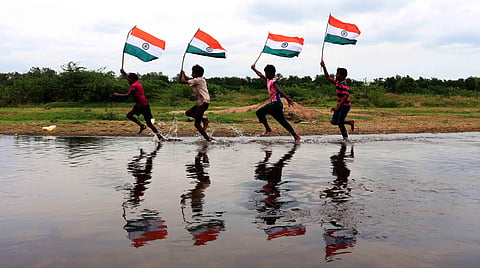

BENGALURU: We’ve all sung Hum Honge Kamyaab in school, and most probably the original English We Shall Overcome as well. While the lyrics and melody are familiar, most children (and adults) aren’t fully aware of the context behind the song, and what it stands for in the last seven decades.
Music has often been a way for the oppressed to express themselves with less fear of retribution than open protest. It has helped people rally together, support one another, and hold the shared belief that things can and will get better – someday.
The origins of We Shall Overcome are said to go as far back as the 1700s, where it developed as part of the repertoire of spirituals, sung by African- American slaves. The first time the song was used in a form similar to what we know today, was in the 1940s, when African- American women working on Tobacco Plantations in South Carolina went on strike, seeking a pay raise. From there, the song was learnt by other pro-union and labour activists, and eventually became popularised by American folk singer Pete Seeger. Seeger modified the lyrics and melody, and it took the shape we know today. Through his performances, group singing and activism, the song became the anthem of the civil rights movement. It was used by groups marching for voting rights, and for peacefully protesting. There is recorded footage of American protestors singing this as they were attacked by police dogs and taken to jail for violating segregation laws. In 1963, Joan Baez sang the song to 3,00,000 protestors in front of the Lincoln Memorial.
In 1965, the American President Lyndon Johnson used the words “we shall overcome” in a public address, and in 1968, Martin Luther King Jr. used them in his final sermon, few days before his assassination. We Shall Overcome will forever be tied to the American identity fighting for civil rights.
In the rest of the world, the power of the song, and the idea of solidarity through music caught on, and was used extensively through Northern Ireland’s civil rights movement, Czechoslovakia’s Velvet Revolution, China’s Tianamen Square protests, and in other coutries like Bangladesh, South Korea and Lebanon.
In India, it has been translated to many languages, from Hindi, Malayalam, Bengali to Kannada, and is sung as a patriotic song, and as a song of victory and camaraderie. As we continue to sing it with pride, we should always remember the struggle it represented.